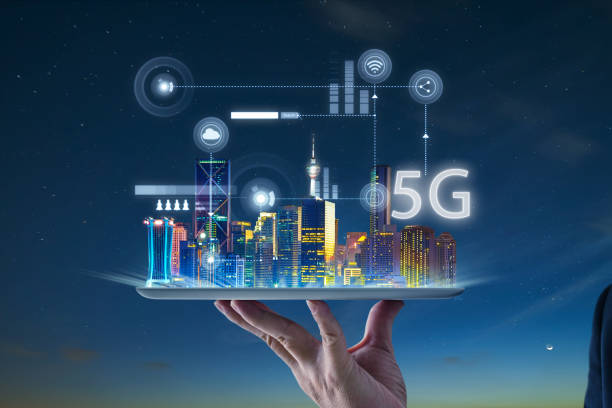5G technology has the potential to revolutionize modern medicine by enabling faster and more efficient communication, data transfer, and connectivity. Here are 30 advantages of 5G to modern medicine:
1. Enhanced Telemedicine: 5G allows for high-quality, real-time video conferencing, making remote consultations and diagnoses more reliable and accessible.
2. Reduced Latency: The low latency of 5G enables instantaneous data transmission, crucial for real-time remote surgery and other time-sensitive medical procedures.
3. Massive IoT Support: 5G can handle a vast number of connected devices, facilitating the growth of the Internet of Things (IoT) in healthcare, such as smart medical devices and wearables.
4. Remote Monitoring: 5G supports continuous remote monitoring of patients, helping doctors track vital signs and health data in real-time.
5. Data-Intensive Applications: With higher bandwidth, 5G can handle large medical imaging files and other data-intensive applications more efficiently.
6. Faster Data Transfer: 5G speeds enable quicker access to medical records and information, leading to improved patient care.
7. Improved Augmented Reality (AR) and Virtual Reality (VR) Integration: 5G facilitates the use of AR and VR in medical training, surgery simulations, and patient education.
8. Precision Medicine: The faster data processing capabilities of 5G enable personalized treatment plans based on real-time patient data.
9. Remote Surgery: The low latency and high bandwidth of 5G support remote surgery, allowing specialists to operate on patients from distant locations.
10. Wearable Technology Advancements: 5G empowers the development of advanced wearable medical devices that can transmit data in real-time for monitoring and analysis.
11. AI and Machine Learning: 5G enables quicker data processing for AI and machine learning algorithms, improving medical diagnosis and treatment recommendations.
12. Remote Training and Education: Medical professionals can access virtual training and medical conferences in real-time through 5G networks.
13. Improved Collaboration: 5G facilitates seamless communication and collaboration among healthcare professionals, enhancing patient care outcomes.
14. Reduced Network Congestion: The higher capacity of 5G networks minimizes network congestion, ensuring stable connections for critical medical applications.
15. Enhanced Mobile Health Apps: 5G supports more sophisticated mobile health apps that can provide personalized health recommendations and reminders.
16. Faster Emergency Response: 5G enables faster communication between emergency services, leading to quicker response times and better patient outcomes.
17. Remote Rehabilitation: 5G facilitates remote rehabilitation programs, allowing patients to receive therapy and guidance from their homes.
18. Predictive Analytics: 5G's speed and efficiency enable real-time data analysis, enhancing the accuracy of predictive analytics in healthcare.
19. Robotic Surgery: With low latency, 5G enables precise control of surgical robots, enhancing the accuracy of minimally invasive procedures.
20. Enhanced Connectivity in Rural Areas: 5G can bridge the healthcare gap in remote and underserved regions by providing reliable connectivity.
21. Faster Drug Development: 5G enables quicker collaboration and data sharing among researchers, accelerating the drug development process.
22. Efficient Clinical Trials: 5G enhances remote monitoring of participants in clinical trials, reducing costs and improving data collection.
23. Telemedicine for Mental Health: The low latency of 5G supports seamless and real-time teletherapy for mental health patients.
24. Improved Patient Engagement: With faster and more reliable connectivity, patients can actively participate in their healthcare through telehealth and remote monitoring.
25. Remote Diagnostics: 5G supports high-definition medical imaging and remote diagnostics, making it easier to detect and diagnose medical conditions.
26. Cloud-Based Healthcare Solutions: 5G's high bandwidth makes cloud-based healthcare services more accessible and efficient.
27. Real-Time Emergency
Alerts: 5G enables instant transmission of emergency alerts and notifications to healthcare providers and patients.
28. Secure and Private Networks: 5G networks offer improved security features, protecting patient data and confidential medical information.
29. Medical Research Advancements: 5G enables large-scale data collection for medical research, fostering new insights and breakthroughs.
30. Improved Disaster Response: 5G facilitates coordinated disaster response efforts by enabling efficient communication and resource allocation.
These advantages of 5G in modern medicine demonstrate its potential to transform healthcare delivery, improve patient outcomes, and enhance medical research and development.



